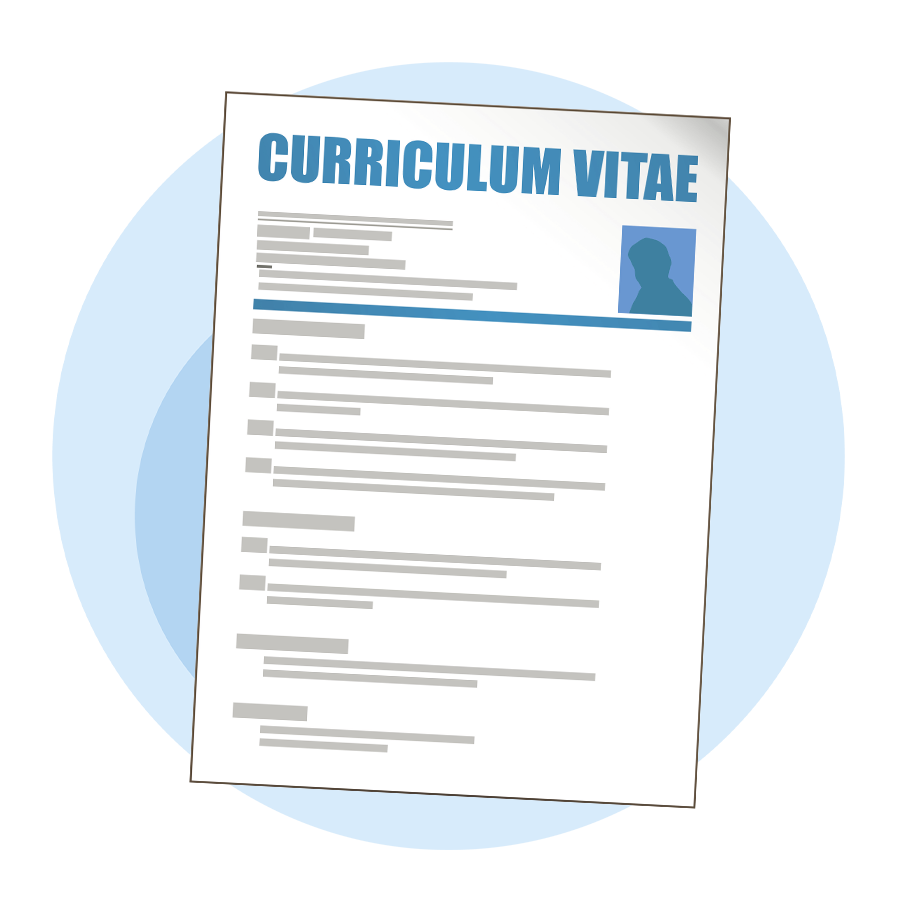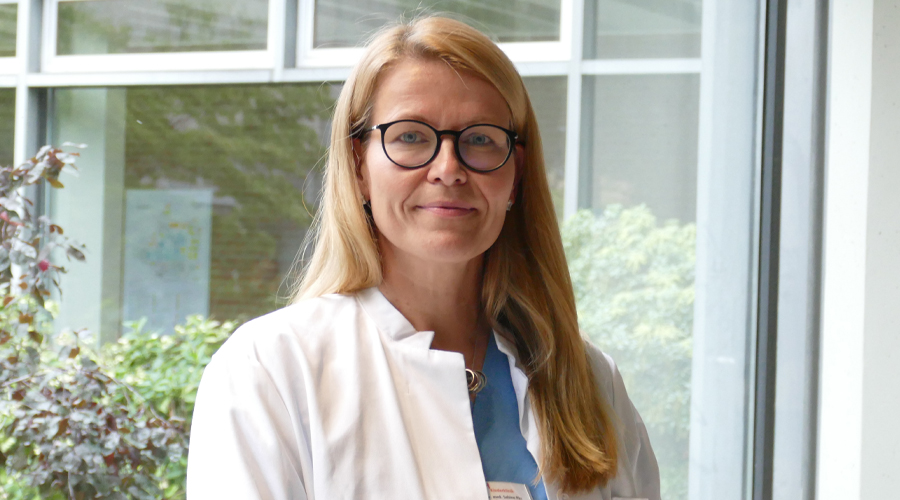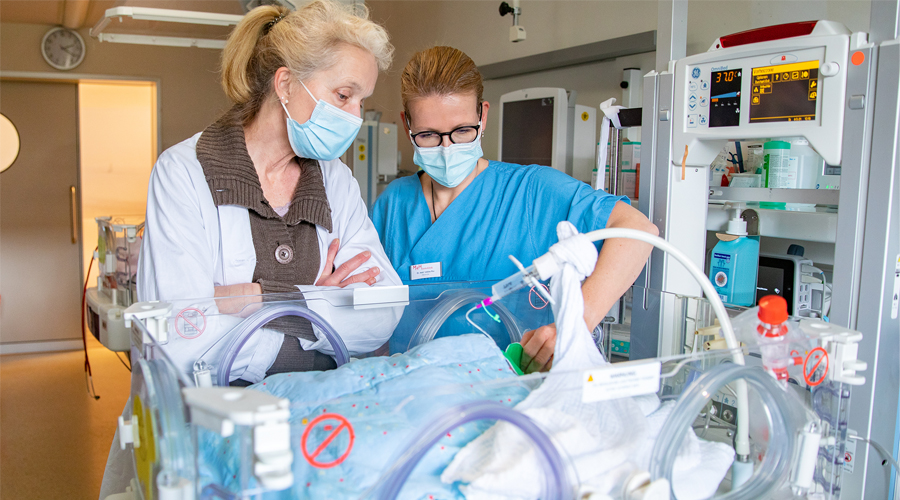| My Research Interest in RESIST |
My research focus is the immune adaptation of term and preterm neonates after birth and the question why newborns and especially premature infants are so susceptible to severe infections compared to older children or adults. Here, I focus especially on the role of breast milk for the development of the immune system and the microbiome of preterm infants. Of particular interest to me are the cellular composition of breast milk with changes over time of breastfeeding and the mechanisms of transmission of and consecutive neonatal infections with human cytomegalovirus.
PD Dr. Sabine Pirr (right) together with Prof. Viemann
PD Dr. Sabine Pirr – Curriculum Vitae
Current Position
Undergraduate and Postgraduate Training
Academic and Research Posts
Other Scientific Roles
Awards and Prizes

Ten most important publications
Klopp J, Ferretti P, Meyer CU, Hilbert K, Haiß A, Marißen J, Henneke P, Hudalla H, Pirr S, Viemann D, Zemlin M, Forslund SK, Härtel C, Bork P, Gehring S, Van Rossum T; the PRIMAL Consortium. Meconium Microbiome of Very Preterm Infants across Germany. mSphere. 2022 Feb 23;7(1):e0080821. doi: 10.1128/msphere.00808-21.
Pirr S, Dauter L, Vogl T, Ulas T, Bohnhorst B, Roth J, Viemann D. S100A8/A9 is the first predictive marker for neonatal sepsis. Clin Translat Med. 2021 Apr;11(4):e338. doi: 10.1002/ctm2.338.
Willers M, Ulas T, Völlger L, Vogl T, Heinemann AS, Pirr S, Pagel J, Fehlhaber B, Halle O, Schöning J, Schreek S, Löber U, Essex M, Hombach P, Graspeuntner S, Basic M, Bleich A, Cloppenborg-Schmidt K, Künzel S, Jonigk D, Rupp J, Hansen G, Förster R, Baines JF, Härtel C, Schultze JL, Forslund SK, Roth J, Viemann D. S100A8 and S100A9 are Important for Postnatal Development of Gut Microbiota and Immune System in Mice and Infants. Gastroenterology. 2020;159:2130-2145. doi: 10.1053/j.gastro.2020.08.019.
Ravens S, Fichtner A, Willers M, Torkornoo D, Pirr S, Schöning J, Deseke M, Sandrock I, Bubke A, Wilharm A, Dodoo D, Egyir B, Steinbrück L, Ghazal P, Adu B, Viemann D, Prinz I. Microbial exposure drives polyclonal expansion of innate γδ T cells immediately after birth. PNAS 2020 Aug 4;117(31):18649-18660. doi.org/10.1073/pnas.1922588117
Pirr S, Viemann D. Host factors of favorable intestinal microbial colonization. Front Immunol 2020;11:584288. doi: 10.3389/fimmu.2020.584288.
Bickes MS*, Pirr S*, Heinemann AS, Fehlhaber B, Halle S, Völlger L, Willers M, Richter M, Böhne C, Albrecht M, Langer M, Pfeifer S, v. Köckritz-Blickwede M, Jonigk D, v. Kaisenberg C, Hansen G, Förster R, Vieten G, Ure B, Viemann D. TNF- -mediated endothelial activation ensures postnatal leukocyte trafficking in health and disease. FASEB J 2019 Oct;33(10):10633-10647. doi: 10.1096/fj.201900796R. *equal contribution.
Ulas T*, Pirr S*, Fehlhaber B, Bickes M, Loof TG, Vogl T, Mellinger L, Heinemann AS, Burgmann J, Schöning J, Schreek S, Pfeifer S, Reuner F, Völlger L, Stanulla M, von Köckritz-Blickwede M, Glander S, Barczyk-Kahlert K, von Kaisenberg CS, Friesenhagen J, Fischer-Riepe L, Zenker S, Schultze JL, Roth J, Viemann D. S100-induced innate immune programming protects newborn infants from sepsis. Nat Immunol 2017 Jun;18(6):622-32. doi: 10.1038/ni.3745. *equal contribution
Pirr S, Richter M, Fehlhaber B, Pagel J, Härtel C, Roth J, Vogl T, Viemann D. High amounts of S100-alarmins confer antimicrobial activity on human breast milk targeting pathogens relevant in neonatal sepsis. Front Immunol 2017;8:1822. doi: 10.3389/fimmu.2017.01822.
Heinemann AS, Pirr S, Fehlhaber B, Mellinger L, Burgmann J, Busse M, Ginzel M, Friesenhagen J, von Köckritz-Blickwede M, Ulas T, von Kaisenberg CS, Roth J, Vogl T, Viemann D. In neonates S100A8/S100A9 alarmins prevent the expansion of a specific inflammatory monocyte population promoting septic shock. FASEB J 2017;31:1153-64. doi: 10.1096/fj.201601083R.
Austermann J, Friesenhagen J, Fassl SK, Ortkras T, Burgmann J, Barczyk-Kahlert K, Faist E, Zedler S, Pirr S, Rohde C, Müller-Tidow C, von Köckritz-Blickwede M, von Kaisenberg CS, Flohé SB, Ulas T, Schultze JL, Roth J, Vogl T, Viemann D. Alarmins MRP8 and MRP14 induce stress tolerance in phagocytes under sterile inflammatory conditions. Cell Reports 2014;9:1-12. doi: 10.1016/j.celrep.2014.11.020.


